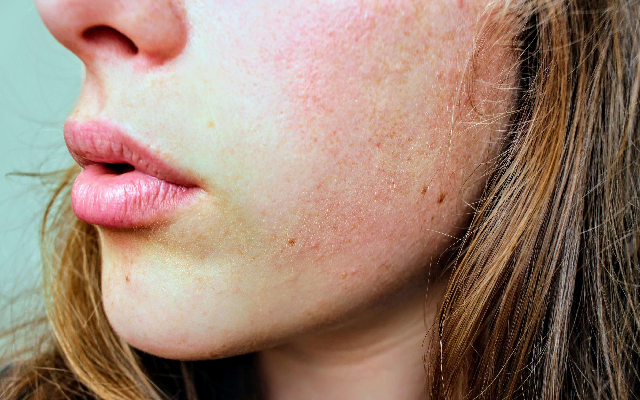
The Difference Between Dry or Dehydrated Skin
Have you been trying to combat that tight, stiff feeling in your skin? Is your skin extra oily? If so, you may be suffering from dry skin. Dry skin is a chronic, genetic skin condition you are born with, as opposed to dehydrated skin, which is caused by external factors.
Today, we are sharing some information on the differences between dry skin vs. dehydrated skin. We’re showing you how to best treat and care for each type, as knowing the difference may make all the difference in your skincare routine.
Why Treating Dry Or Dehydrated Skin Is Important?
If your skin becomes overly dry or dehydrated, it may flake and crack, which can lead to bacteria in your skin, which may cause breakouts or skin irritations.
Dry and or dehydrated skin is also more vulnerable to damaging free radicals, and more prone to premature aging because the skin's moisture barrier is compromised.
If your skin is overly dry or oily, it’s pH level may be unbalanced, and it will begin to produce more oil to compensate, which may lead to increased breakouts.
Dehydrated Skin Characteristics
- Dehydrated skin is a condition that develops from external factors like diet, environment, product choice.
- Dehydrated skin is usually lacking water and needs hydration.
- Dehydrated skin feels tight and itchy around the forehead and cheek areas.
- Anyone can experience dehydrated skin, as opposed to dry skin.
- Those with dehydrated skin may experience dark circles and bags under the eyes due to increased skin sensitivity.
- Dehydrated skin may appear intermittently. It can be based on climate, diet, hot water use, heating or air condition systems, and incorrect product use.
How To Help Improve Dehydrated Skin
- Dehydrated skin is often mistaken as oily skin, due to the skin being overly dehydrated and producing excessive oil. As a result, many try to use products to dry out the skin and control oil production, which in turn only exasperates the issues.
- Dehydrated skin benefits from water-based moisturizers.
- Dehydrated skin benefits from reduced alcohol and caffeine intake.
- Also try and avoid harsh products that strip the skin.
- Look for skincare and beauty products rich in water. In addition, hyaluronic Acid has the ability to hold up to 1,000 times its molecular weight in water, fortifying the skin's natural barriers by penetrating and infusing all layers of the skin with valuable, rejuvenation moisture. Aloe Vera is another super hydrating ingredient to look for.
Dry Skin Characteristics
- Dry skin lacks sebum (oil) and requires moisture to maintain its health.
- Dry skin lacks a sufficient amount of lipids.
- Dry skin is a genetic skin type you are born with and will need to continuously treat, especially in colder climates.
- Dry skin is a chronic condition.
- Dry skin can also experience dehydration.
How To Help Treat Dry Skin
- Dry skin benefits from products rich in oil.
- Dry skin benefits from increased water intake and facial oils/moisturizers.
- Use a humidifier in your home.
- Use lukewarm water to shower, and limit time in the shower.
- Avoid harsh products that strip the skin.
A healthy, balanced, and glowing complexion is something we all want. Knowing how to identify and treat specific skin types and conditions will help you to treat any skin issues and help to return your skin to balance. Knowing your skin type can also enable you to select products that enhance your complexion and do not irritate your skin.






